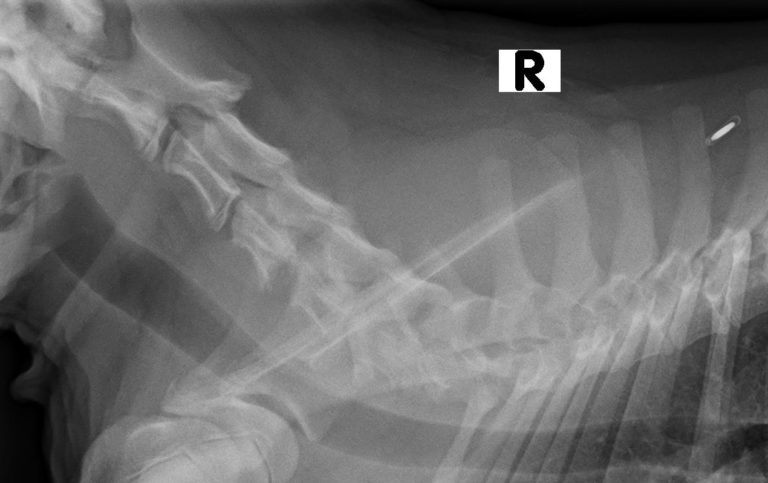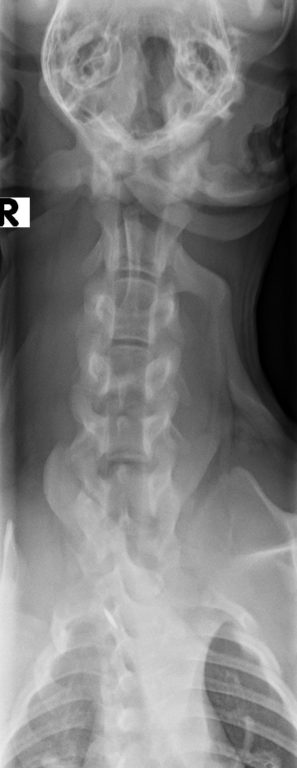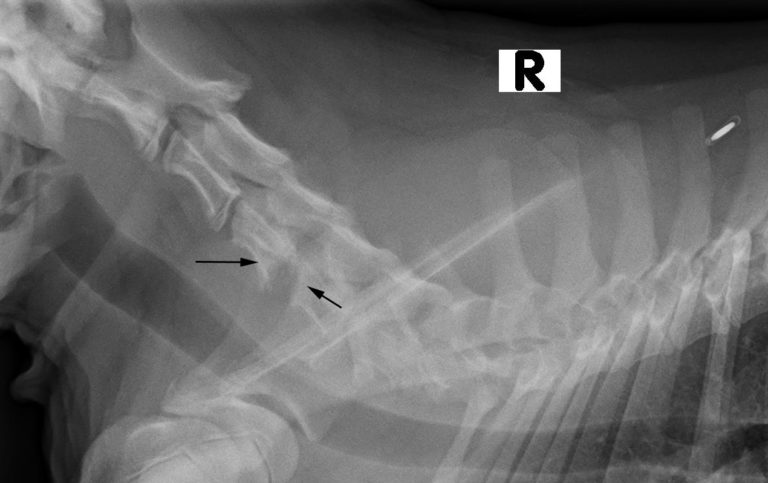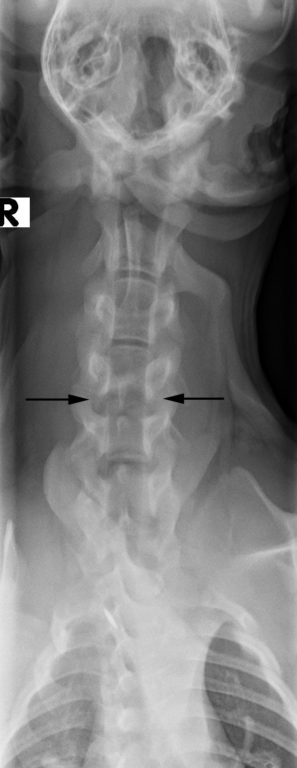Radiology View: What’s Your Read?
Patient Presentation
A six-month-old intact male terrier mix presented for pain on neck manipulation.
View the radiographs (figure 1 and figure 2) below and consider the following questions:
- What are your radiographic findings?
- What is your diagnosis?

Figure 1. Lateral radiograph of the spine from a six-month-old intact male terrier mix with neck pain.

Figure 2. Ventrodorsal radiograph of the spine from a six-month-old intact male terrier mix with neck pain.
Radiographic Findings
There is a lucent appearance of the caudal endplate of fourth cervical vertebrae (C4) and the cranial endplate of the fifth cervical vertebrae (C5) which is consistent with the presence of lysis (see arrows figure 3 and figure 4).
The body of the seventh cervical vertebra has a shortened appearance in several images but this is suspected to be the result of positioning.

Figure 3. Lateral radiograph of the spine. Note lucent appearance of the caudal endplate of C4 and the cranial endplate of C5 consistent with the presence of lysis.

Figure 4. Ventrodorsal radiograph of the spine. Note lucent appearance of the caudal endplate of C4 and the cranial endplate of C5 consistent with the presence of lysis.
Conclusion
Lysis of the caudal endplate of C4 and cranial endplate of C5 is considered evidence of an infectious process. Discospondylitis is the primary differential; in a patient of this age infection arising at the vertebral physes is an additional differential.
Recommendations
Initiation of broad-spectrum antimicrobial therapy is indicated.
Fluoroscopic-guided or computed tomographic-guided aspiration of the abnormal vertebrae could be considered for definitive diagnosis.
Check out more…What’s Your Read
RADIOLOGY VIEW: WHAT’S YOUR READ? 13-YEAR-OLD DOG WITH ABDOMINAL PAIN
RADIOLOGY VIEW: WHAT’S YOUR READ? 13-WEEK LAB WITH LETHARGY & COUGH

